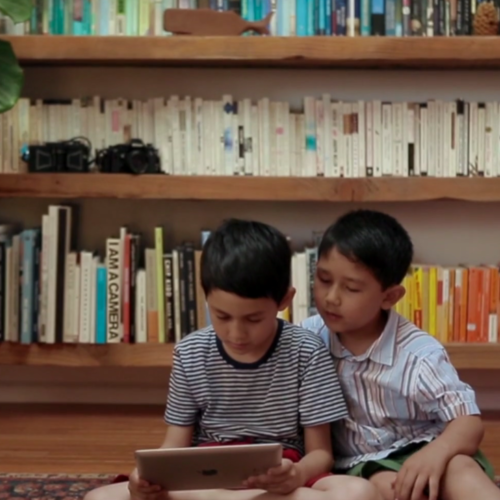Why it's a good thing kids ask so many questions

Kids ask a lot of questions.
Some studies show 4-year-olds ask as many as 200 to 300 questions a day. Warren Berger, author of A More Beautiful Question, says kids ask an average of 40,000 questions between the ages of 2 and 5.
Berger also found that over the next couple of years, as kids go to school, the number of questions they ask declines. The reasons vary: it’s exhausting for parents to answer so many. Teachers have to make sure kids know answers. Asking questions can be associated with not knowing something, which might be perceived as not cool.
But asking questions is essential to learning and it’s something kids do naturally. Writing about Berger's research for KQED’s Mind/Shift, Katrina Schwartz says:
Curiosity is baked into the human experience… Young kids encounter something new, learn a little bit about it, get curious and then continue to add on a little more information with each new discovery…. When treated as a lifelong endeavor, learning a little bit about something opens up space to learn more.
The apps in our Explorer’s Library series are designed to introduce kids to big topics—The Human Body, Plants, Homes, Simple Machines, The Earth—and inspire questions about them. They're a beginning for lifelong learning. We hope that as kids learn in the apps, they ask questions, and those questions start conversations between kids and their parents. But we also realize even adults may not know all the answers—and that’s OK. We put together a handbook for every app so you can refresh your memory, and maybe even learn something new, as your kids play and learn, too.
As Schwartz writes:
One of the primary ways adults can support questioning, Berger said, is to model curiosity and to value questions. Instead of asking a child, “What did you learn at school today,” a parent might ask, “What great question did you ask today?” Or, when a child asks one of those great, deep questions that gets at why humans are even here, parents could dive in and explore the question with their child. “You don’t have to have the answers. You just have to have the interest,” Berger said.
Update: Our Explorer's Library app, Weather, helps answer (and spark!) some of kids’ most frequent questions: Why does it rain? What’s air? Where do clouds come from and where do they go? Download it on the App Store.
